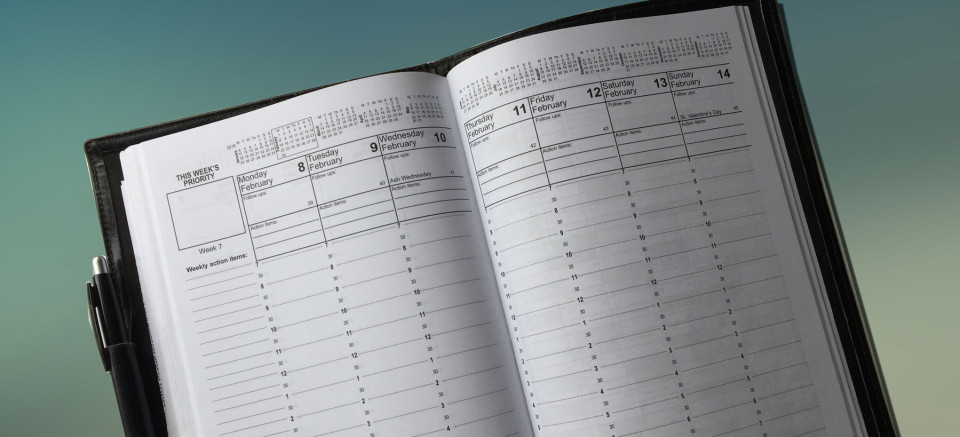A Time Management Article by Harold Taylor
And it was the best planner. For me, that is. And it allowed me to illustrate how to get the important things done by making appointments with myself to do so, and learning how to keep those appointments.
But what I did not realize at the time, is that it did not matter what planner you use, whether you write things down in pen and ink, on a calendar or blank page, or even in your brain if you have a photographic memory. The onus is on you, not your planner, to follow through and do the work.
For those of you who may have attended any of my workshops during the late 80s, you may recall one of my favorite sayings: “The only time management system that will work for you is one you develop yourself or adapt to your own needs.” In my time, I have seen people more effective with a $2 scratch pad than others were with a $200 planner/organizer.
It is like trying to lose weight by swallowing a pill rather than by exercising. Our brain is programmed to take the path of least resistance. So, instead of reprogramming our brain, and developing self discipline, which everyone by now must realize is possible because of neuroplasticity, we keep searching for the right planner (pill) that will work for us.
About five years ago my planner business dwindled as more and more of my customers started using digital devices as planners. This was on top of losing two major customers who went out of business. (Hopefully not because of using my planner.) I decided to get out of the planner business, and I went back to using the planner that I had used before developing my own. It happens to be the Quo Vadis Minister style planner. But that’s only because it was close enough to mine to work just fine. The planner is not as important as how you use it.
People who fail to schedule themselves into their planning calendar, but simply use a to-do list, are usually victims of their input. Input consists of those incessant daily demands on your time, such as meeting invites, requests for information, emails, text messages, telephone calls, and so on. Many people spend most of their day responding to their input, while their output, those things they want to get done, are either delayed or abandoned. Input is unpredictable, unplanned, unprioritized, and in most cases, completely unrelated to your goals and priorities.
Never let your output be determined by your input. No planner will help you if you fail to become master of your own time. That is what time management is all about. Your planner is a tool, not a strategy.
If you have the necessary time for your goal-related tasks and activities blocked off in your planner, it is simply a matter of protecting that time from being replaced by those unplanned, and in most cases, unimportant inputs. This requires a combination of strategies, such as less frequent visits to your in-box, and self-control, the resolve and know-how to say “no” to inappropriate requests, opportunities, meeting invites, and so on.
And how you schedule in the first place must allow for unanticipated intrusions that are both important and urgent.
But don’t waste time trying different planners every few months. Invest that time in learning how to best manage your time in your working environment. And be proactive. It is the reactive mode that results in the greatest time loss.
Successful People Read. A Lot.
What do Warren Buffett, Mark Zuckerberg, Elon Musk and Oprah Winfrey have in common? They all read - a LOT! If you want to be successful you need to read. We have over 30 short ebooks designed to get you booked up fast!


